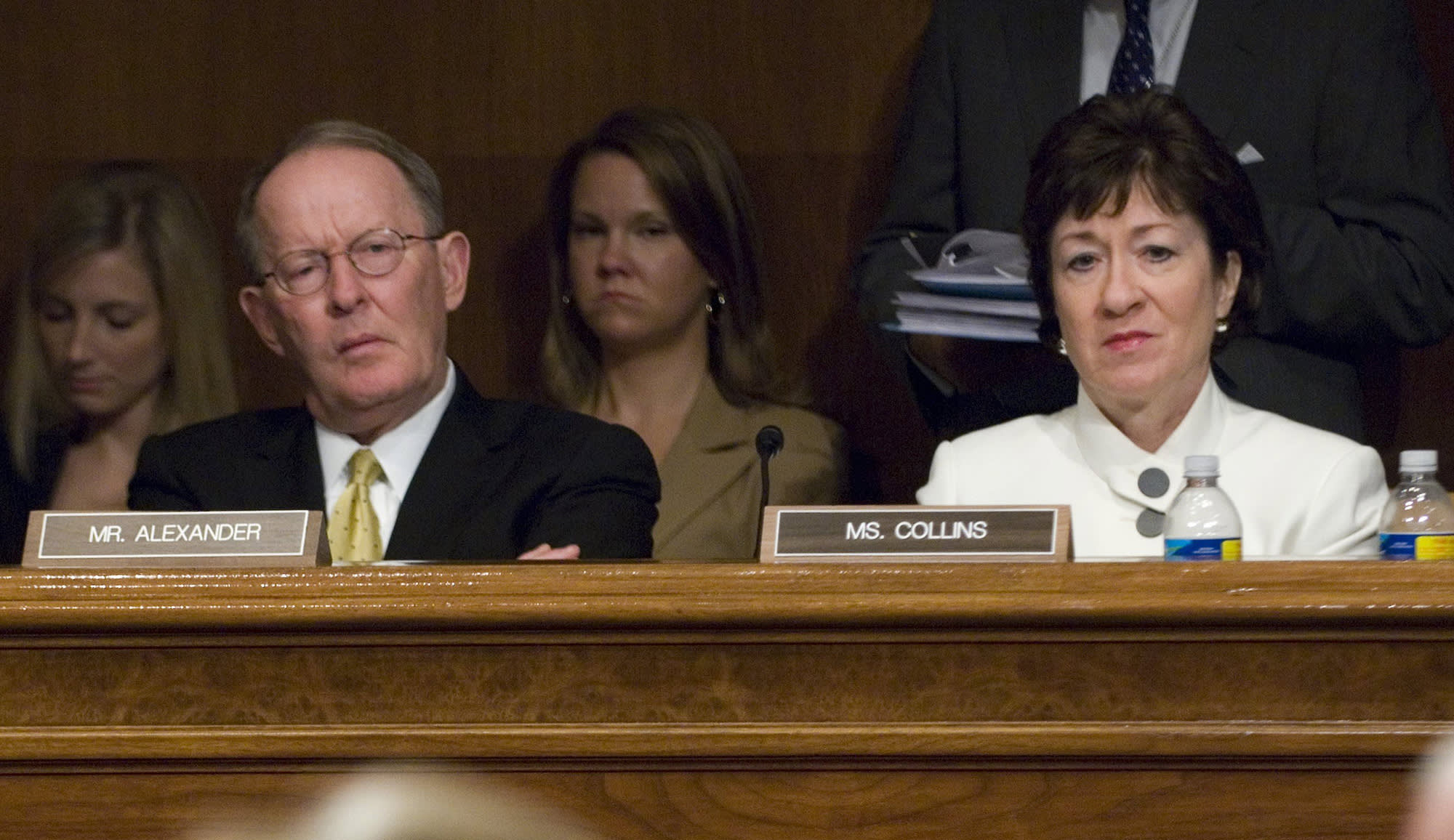
Sen. Lamar Alexander, R-Tenn., and Sen. Susan Collins, R-Maine.
Scott J. Ferrell | Congressional Quarterly | Getty Images
WASHINGTON — Two key Republican senators announced their positions on the inclusion of additional witnesses in the impeachment trial of President Donald Trump.
Retiring Sen. Lamar Alexander of Tennessee said he would vote against any proposals for further witnesses. In a statement, Alexander surprisingly appeared to say he believed the Democrats had proven their case, but that the president's actions did not meet the standard for an impeachable offense.
"It was inappropriate for the president to ask a foreign leader to investigate his political opponent and to withhold United States aid to encourage that investigation," Alexander said in his statement. "When elected officials inappropriately interfere with such investigations, it undermines the principle of equal justice under the law. But the Constitution does not give the Senate the power to remove the president from office and ban him from this year's ballot simply for actions that are inappropriate."
"There is no need for more evidence to prove something that has already been proven, and that does not meet the United States Constitution's high bar for an impeachable offense," Alexander wrote.
Alexander's Republican colleague, Sen. Susan Collins of Maine broke the other way, announcing late Thursday night that she will vote to admit additional evidence in the trial.
"We have heard the cases argued and the questions answered ... I believe hearing from certain witnesses would give each side the opportunity to more fully and fairly make their case, resolve any ambiguities, and provide additional clarity. Therefore, I will vote in support of the motion to allow witnesses and documents to be subpoenaed," Collins said in a statement.
On balance, Alexander's no vote may have dealt a mortal blow to Democrats' hopes of calling more witnesses in Trump's trial, chief among them, former National Security Advisor John Bolton.
That vote, which is expected to occur Friday, marks a pivotal moment in the impeachment proceedings that have dogged Trump for months. On Wednesday, Sen. Mitt Romney, R-Utah, signaled that he would vote with the Democrats.
With Collins and Romney both yesses, and Alexander a no, it remained unclear late Thursday whether Democrats would be able to convince the minimum of four GOP senators required to approve the new witnesses and documents.
Alaska Republican Sen. Lisa Murkowski has yet to say how she plans to vote. And until the vote happens, there remains a longshot possibility that other Republicans might surprise their colleagues and break with their party and vote with the Democrats.
If Democrats can convince four senators to join them in supporting witnesses, the trial could proceed for weeks or months longer as new battles arise over testimony from key witnesses, such as Bolton and acting White House chief of staff Mick Mulvaney.
But if the GOP-majority chamber votes not to allow that new content, then the trial could quickly proceed to a final vote on whether to acquit Trump or remove him from office — possibly as soon as next week, when the president is set to deliver his State of the Union Address.
The House voted to impeach Trump last month on articles of abuse of power and obstruction of Congress. Democrats accuse Trump of withholding nearly $400 million in congressionally appropriated military aid to Ukraine while pressuring the country to announce probes into former Vice President Joe Biden and his son, as well as a debunked conspiracy theory about 2016 election interference.
House Democrats and defense lawyers made final arguments Thursday for more than nine hours on the eve of Friday's crucial vote on additional evidence and witnesses.
No comments:
Post a Comment